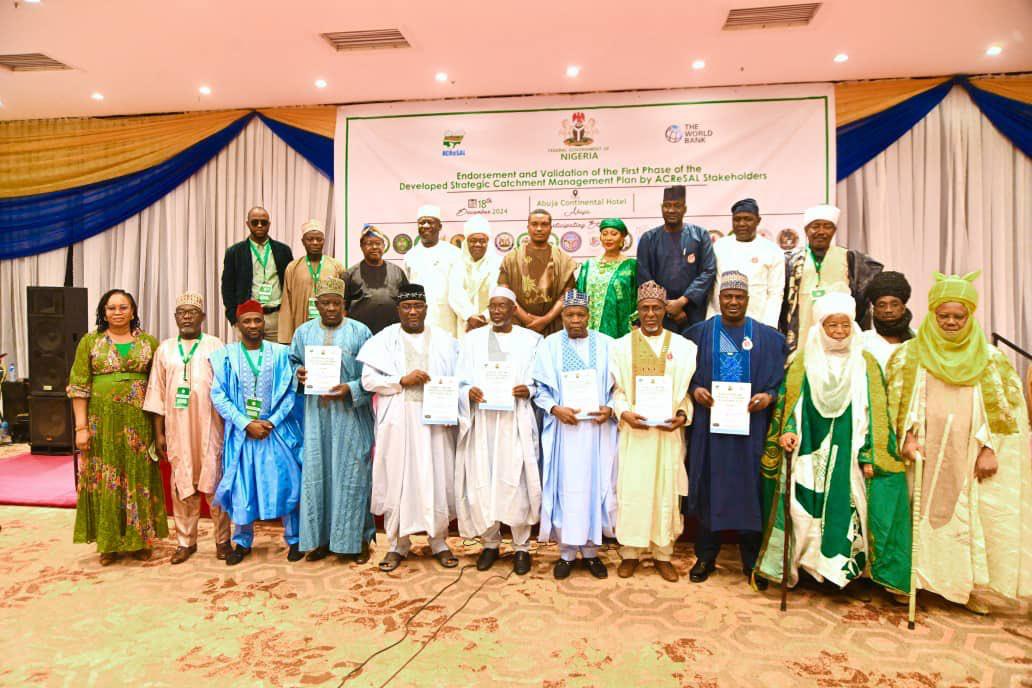The Agro-Climatic Resilience in Semi-Arid Landscapes (ACReSAL) Project supported by the federal government, the World Bank and other stakeholders, said it has so far restored 92,367.27 degraded hectares of land across the 19 benefitting states and the FCT.
ACReSAL is a World Bank-financed project designed to tackle the pressing issues of land degradation and climate change in 19 states of northern Nigeria and the Federal Capital Territory (FCT).
The National Project Coordinator of ACReSAL, Abdulhamid Umar, disclosed this in Abuja at a two-day workshop and endorsement/validation of the first phase of the developed strategic catchment management plans by stakeholders.
He said 1,003,000 have benefitted from the project while a total of $1,975,000 USD has been disbursed to 79 communities.
Meanwhile, the federal government said it has taken a significant step towards environmental sustainability and economic development with the endorsement and validation of the first phase of the Strategic Catchment Management Plans (SCMPs).
Minister of Environment, Mallam Balarabe Abbas Lawal, expressed pride in the groundbreaking initiative, marking the first time Nigeria has embarked on developing strategic catchment management plans of this scale.
“The development of 20 strategic catchment or watershed management plans is the foundation for the ACReSAL Project’s implementation,” he stated, emphasising that the plans align with the government’s commitment to sustainable environmental management and economic growth”, he said.
Mallam Lawal explained that technical stakeholder engagement activities had been ongoing, ensuring the content of the report reflects a collaborative and inclusive approach.
“This report represents the culmination of months of stakeholder engagements and technical consultations. Its implementation will depend on the political will and support provided by decision-makers at all levels,” the minister said.

 Join Daily Trust WhatsApp Community For Quick Access To News and Happenings Around You.
Join Daily Trust WhatsApp Community For Quick Access To News and Happenings Around You.